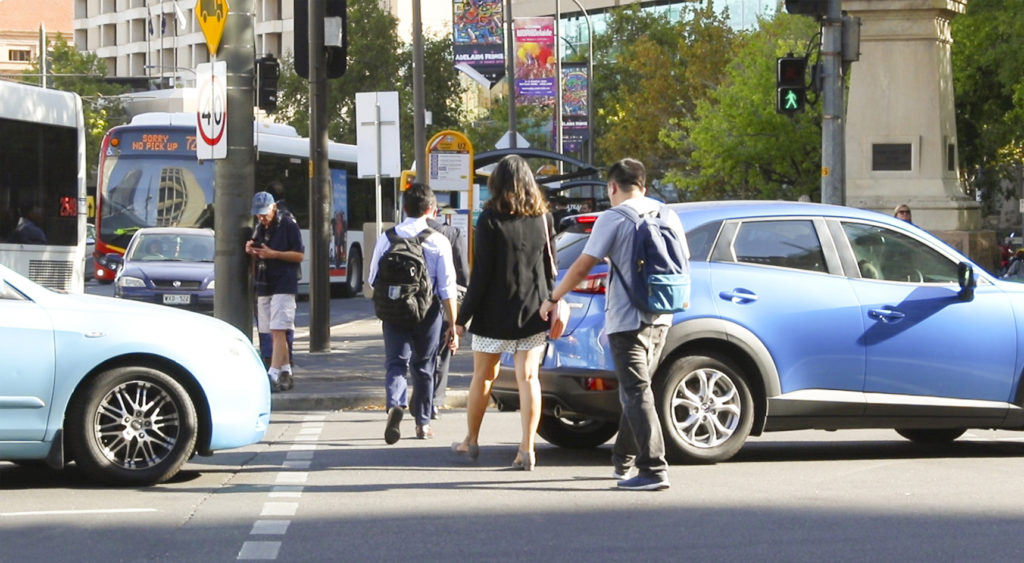Gridlock: Why you shouldn’t queue across intersections

It’s the middle of peak hour, and traffic is beginning to build across the city.
As the streets become more congested, impatient motorists queue across intersections to try and gain a few metres.
What they don’t consider is that when the lights change and they’re still stuck at the intersection, traffic coming from other directions ends up being gridlocked.
This scene plays out every day across Adelaide during peak hour, and has resulted in police pulling up more than 260 motorists in the past five years for entering a blocked intersection.
Not only does it have the potential to obstruct the movement of other vehicles and the overall flow of traffic, it can also impact pedestrians and cyclists trying to cross the road.
Blocking an intersection offences
Of the 265 motorists caught blocking an intersection between 2014 and 2018, almost 100 were fined a total of $25,561.
RAA Senior Manager Road Safety Charles Mountain said motorists need to ensure they don’t just follow the traffic across the intersection unless they can see there is enough space for them.
“Queuing across an intersection can be extremely dangerous because the lights might change, leaving you in the way of oncoming traffic and potentially blocking the pedestrian crossing, putting pedestrians at risk too,” Mr Mountain said.

“Creeping forward a couple of metres into an intersection when traffic is at a standstill achieves no advantage and in fact adds time to the journey of all road users.
“You must stay on the approach side of the intersection until you see a space in your lane on the other side of the intersection that is big enough for your vehicle – that’s why it’s important to be vigilant with traffic ahead and watch for signs of unexpected slowing.”
If caught queuing across an intersection, you risk a $274 fine, $94 Victims of Crime Levy and 3 demerit points.

